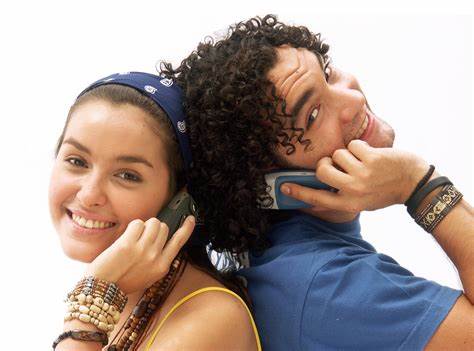Education Tips: What is Good Digital Citizenship?
Some adults and teachers may think young people want to spend all of their time using social media. But a recent survey shows that may not be true. It found that students sometimes want to turn off their electronic devices to get away from the pressure to take part in social media.
For the study, researchers led a series of discussions at classes in the United States. They asked young people what they thought about social media.
The survey was a project of Common Sense Media, a non-profit group based in California, and a learning games platform called Kahoot!.
Eight out of ten students said that "some people think too much about their social media posts and are always trying to be perfect." About a third said it was acceptable "to post a version of yourself on social media that's not 100 percent real."
The students also talked about the issue of publishing unkind or hateful comments online. More than half of those questioned said that social media are "tearing us apart more than they are bringing people together."
With this in mind, how can teachers help?
Today, we will look at how teachers can support good digital citizenship through safe, kind and healthy use of social media. Common Sense Media defines digital citizenship as "thinking critically, behaving safely, and participating responsibly in the digital world."
For more about this subject, see the VOA Learning English series on News Literacy.
Teachers can begin by talking with students about how they use social media. How does it make them feel? Do the young people want to change anything about the way they interact with others online?
Teachers should learn what computer application programs their students use most often. Teachers should then use this information to keep in contact with students and share homework assignments.
Next, define the words cyberbullying, digital drama and hate speech. Young people need to recognize the differences among these issues and know how to deal with them.
Common Sense Media has free lesson plans for all grade levels on digital citizenship. They include videos and other images to explain the ideas at the student's level.
"Digital drama" is the everyday arguments and small problems that come up between friends or with other people you know online or via text message.
"Hate speech" means expressing hatred of a particular group of people. For younger students, this is called 'being mean.' Teachers should let students know they are available to help when students face online problems.
Experts say teachers should choose a social media app their students often use. Limit posts or messages to once per class period or to what is necessary to provide information to students.
Bayly DiPilato is an English teacher and lives in New Jersey. She told National Public Radio that she did not want to use Facebook to communicate with students because it is too personal. Although her students have email, she found they do not often look at it.
DiPilato instead chose the social networking service Twitter to give out homework and reading materials. She says Twitter lets her share information quickly and show how to use social media in a professional, healthy way.
Another idea is to get students to ask questions on the shared app, as one person's question is probably shared by others. Teachers have to make sure they do not help one individual without giving the same information to all students.
Experts also say teachers need to set time limits for using social media with students. Teachers could say they will only answer questions until nine at night on school nights, for example. They need to explain that adults, too, need to 'unplug' sometimes and get away from their phones and computers.
Part of digital citizenship is related to privacy. When sharing something done in class, teachers must remember to post pictures of students' work but not of the students themselves. This is done to protect the online privacy of students.
Social media, electronics and digital resources are an increasingly large part of students' lives. Experts say that with the guidance of teachers and other adults, young people can learn to become good digital citizens.
I'm Jill Robbins.











